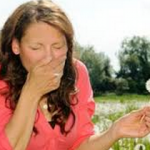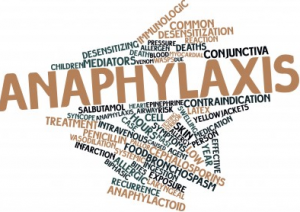Life is great in HP Towers this week. Business is booming, the sun is shining and the office windows are wide open so we can enjoy the fresh, spring air. However, I have one problem which is common for millions of us. My eyes are itching and I can’t stop sneezing; I’m a long-time sufferer of hayfever. Help and awareness is on hand next week as Allergy Awareness Week kicks off from Monday 25th May. We are all bombarded with constant streams of health advice, health awareness events and scare stories so, should Allergy Awareness week be taken seriously?
Well, we certainly think so! Why? An estimated 21 million adults in the UK suffer from at least one allergy (includes allergy to pollen, animals and medicines), and around 10 million adults suffer from more than one (Mintel, 2010). There are many different causes of allergy and symptoms vary from mild to potentially life threatening. People with allergies can have a reaction called anaphylaxis (pronounced anna-fill-axis), which can be fatal if it isn’t treated immediately, usually with an injection of adrenaline (epinephrine).
So, what is an allergy?
An allergy occurs when a person’s immune system reacts to substances in the environment that are harmless for most people. These substances are normally known as allergens and are found in house dust mites, pets, pollen, insects, moulds, foods and some medicines. Allergic people can
- Get a runny nose and itchy eyes,
- Sneeze,
- Get itchy and red skin,
- Cough hard and find it hard to breathe,
- Have a tummy ache and vomit.
Why do people have allergies?
Sometimes it is because their parents have allergies but, most of the time we just don’t know. Unlike colds and chicken pox, you can’t catch an allergy from someone else. The most common allergies include:
- Food
- Insect stings
- Medicine
- Dust mites
- Plants
- Pets
Be allergy aware – Do’s and Don’t’s

If grasses, trees, flowers, or weeds get an employee’s allergy symptoms going, should they avoid going outside?
They shouldn’t have to if they’re being treated. If over-the-counter allergy treatment isn’t handling their allergy symptoms, encourage them to see their doctor. Taking some simple precautions can help – for example, whilst outside, they should wear glasses and a hat.
Should employees skip exercising?
They should keep exercising, but only attempt what they feel comfortable doing. If someone is allergic to pollen, then they should skip outdoor morning exercise, when pollen counts are at their highest.
Should allergy sufferers get extra rest?
Resting doesn’t improve allergy symptoms because the problem is not caused by a weak immune system, which would be improved by rest. But, allergy symptoms make it easier to get an infection, like a sinus infection. If employees are sleeping well rested, they are less likely to have their allergy symptoms escalate into another type of infection. As always, it is important for people to find a balance!
Should allergy sufferers drink alcohol?
No — especially if staff are taking sedating antihistamines for their allergy symptoms. Alcohol also tends to cause redness and swelling of the same tissues that are affected by allergies, making sufferers feel worse.
Please remember that life threatening allergic reactions require immediate treatment

Most allergic reactions are mild or moderate, and do not cause major problems, even though for many employees they may be cause extreme irritation and discomfort. However, a small number of people may experience a severe allergic reaction called anaphylaxis, as mentioned above. It is a serious condition which requires immediate life saving medication. Ensure that staff with severe allergies have constant access to their EpiPen and ensure that they have an Anaphylaxis Management Plan from their GP. Encourage them to discuss their condition with colleagues and are aware of how to use an EpiPen if it is required.
We are now taking bookings for our popular Summer Health Awareness Workshops which cover allergies, skin care and much more. Contact the HP Team here and book your sessions today.












